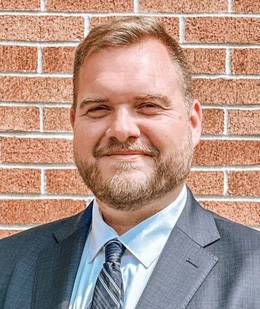Weighing out the options of a permissible 2.26 percent tax increase versus going whole hog for a super-majority vote and a 4 percent increase, or having no increase at all and actually tightening the belt and eliminating expenses for a tentative $60.5 million budget, Batavia City School board members covered the gamut of responses to a nearly $1.4 million budget gap during its second review Tuesday evening.
Toward the end of a 90-minute session, Vice President John Reigle posed a question that was perhaps three years too late.

“Call me crazy, but should we start planning now? Those three years knowing, I mean, I kind of feel like we knew these COVID grants were running out. We should have been proactive and tried to replace that money instead of being in this position now. I think it's very difficult,” Reigle said.
Business Administrator Andy Lang reviewed adjustments made so far since the initial meeting two weeks ago. Those include possibly cutting seven full-time COVID-19 grant-funded positions (three-year grant due to expire in September), four full-time positions that will be reduced based on enrollment, elimination of three full-time teacher positions by not replacing retirements; moving seven full-time positions from the general fund into ongoing grants, and reductions of three bus runs, equipment purchases and school supplies that had previously been provided free for all students.
That still leaves a gap and the options of increasing the tax levy, pulling more from the appropriated reserve, similar to a district savings account, or further cutting expenses, Lang and Superintendent Jason Smith said.
Lang had suggested drawing $2.5 million from reserves toward the 2025 budget and said that more could be taken if the board wanted to.
“How much danger does it put us in the future for next year?” board member Alice Benedict said. “How much would be left?”
Lang said he will calculate the remaining amount later this year, and the reserve is considered a “safety net” for the district.

“So a lot of it depends on where we end up at the end of this year, how much total fund balance that we have on the site. And then the other factor is how much revenue actually comes in for next year. If status is reinstated to what it should have been, the district will realize additional revenue, we may not have to utilize or actually use that appropriated fund balance, but the safety net, it's a safety net so that we don't put ourselves into a deficit situation,” Lang said. “Just because we appropriate that fund balance does not necessarily mean that we use it; our expenditures could be less than anticipated, and our revenues can be greater than anticipated and the amount that we are appropriating, so it'd be a wash.”
Benedict also proposed finding a way to keep the free school supplies for all students in the budget. That was a perk provided due to the pandemic, and the supplies were purchased with COVID grant money at an expense of about $90,000. Benedict argued that there should be a way to retain those goods in the budget now that the grant funds are drying up.
Board Vice President John Reigle countered that the money could be better spent, such as on a teacher position—or about 1.5 positions, Lang said—and Reigle preferred putting the funds toward instruction versus supplies.
Smith pushed for keeping the seven positions in place, and even though they include extracurriculars, he recommends keeping them because they are “robust” programs.
He wouldn’t want to see the board take away drama club, marching band, football, “all the things that make school a school,” he said.
He suggested that the board wait until the state budget is more firmly in place to get a better idea of how much state aid the district will receive. The board could still work on a general budget, and a “best case scenario” in Foundation aid would add $300,000 to the revenue side, Lang said.
After a nearly 90-minute session of reviewing numbers and options, Smith asked members who were for a tax increase. Board President John Marucci, who was quiet throughout the meeting, raised his hand. Otherwise, “we’re going to have to make some serious cuts,” he said.
Lang warned the group that the grants do have an endpoint, just as current COVID grants are coming to an end this September.
“The only other thing I’d just like to mention regarding general fund grants is that some of those grants are finite. They are not perpetual grants. So, there might be, those grant funds would eventually cease after several years, and the mental health grant was three additional years from now,” he said. “So just as kind of a precautionary measure to the board.”
He also added that “there’s only so much you can cut out with those one-time” expenses, such as supplies and equipment. Those expenses will return again next year, he said.
Reigle made a final request to Smith at the close of the meeting.
“We’re basically cutting seven positions, correct? I gotta imagine that's gonna put such a burden on these guys. And we’ve seen such an improvement in our numbers the past few years, and we’ve really harped on it. And I think the coaching positions have helped. If there's things we can try to find, or if there's alternatives, I think we should try some of your alternatives to try and save some of these positions,” he said. “(In a news article, City Council President) Mr. Eugene Jankowski pointed out in his presentation, ‘we don't want to lose law enforcement or first responders.’ These are our first responders, so I’d like to see some possible options.”
